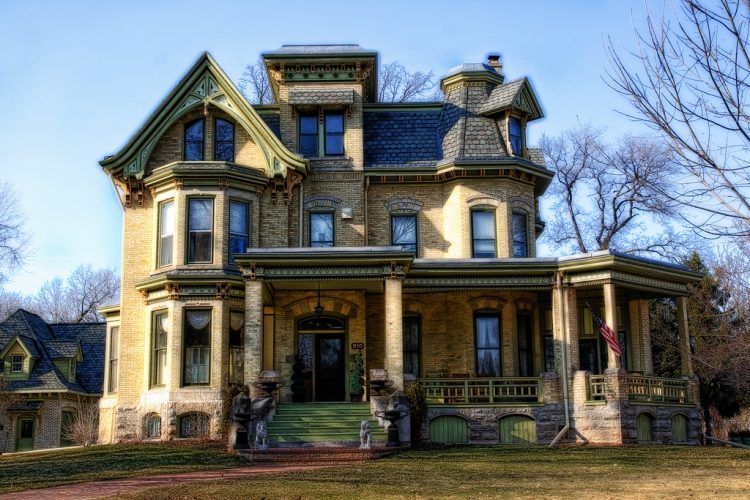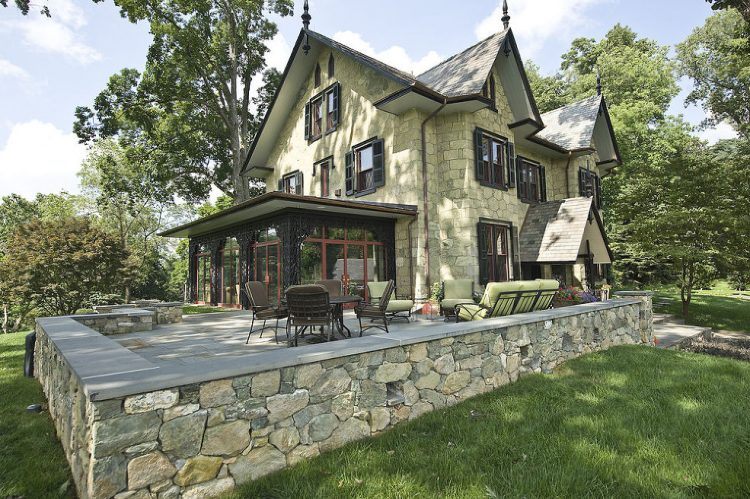
A historic home is a home that has been recognized by the relevant authorities as not just old but also interesting in some way. As a result, historic homes come with a number of both advantages and disadvantages that serve to distinguish them from other real estate properties, which is why you need to learn more about them before you buy one of them. After all, real estate transactions tend to be expensive, complicated, and time-consuming, meaning that making even a small mistake is something that can result in catastrophic consequences. As a result, it is in your best interests to make sure that you know what you are doing before you do it.
What Are the Requirements For a Historic Home to Be Considered a Historic Home?
1. First, a home must be at least a certain age before it can be considered a historic home. After all, a historic home is a historic home, meaning that it would be inappropriate to label something built in recent decades as a historic home even if it meets the rest of the criteria. With that said, it is important to note that “historic” is a relatively nebulous concept, meaning that different lists of historic homes can have significant differences when it comes to their age requirement.
2. Second, a home cannot be considered a historic home unless it remains in a recognizable state to when it became labeled as a historic home. This is important because much of a historic home’s value lies in its appearance with the result that to change it is to cost it the special value that makes it a historic home rather than one of the other residential real estate properties out there.
3. Third, a historic home must have something interesting about it that makes it worthy of preservation. Fortunately, worthiness can have a wide range of meanings. For example, historic homes are worthy because they were once the homes of someone famous. In contrast, other historic homes are worthy because something of historical significance happened on their premises. Finally, some historic homes are worthy because either their interior or their exterior or both are interesting enough and important enough that they should be preserved for future generations.

What Are the Advantages and Disadvantages of a Historic Home?
1. Generally speaking, historic homes tend to have a fair amount of charm and character that cannot be found in newer homes. This is particularly true when historic homes are situated alongside other homes built using the same styles and the same materials, thus resulting in beautiful historic neighborhoods that are sure to amaze those with an appreciation for their particular look. As a result, historic homes tend to have a lot of people who are interested in them, though there is enough variation between them that this is not necessarily the case under all circumstances, meaning that some historic homes are surprisingly affordable for their homeowners.
2. Local governments will sometimes offer historic homeowners tax incentives as well as other financial incentives in order to help them with keeping their historic homes looking their best as a way of promoting a particular look for entire neighborhoods. For people who are concerned about the costs of historic homeownership, these financial incentive should alleviate part but not all of their financial concerns.
3. Historic homes tend to have restrictions placed on potential renovations, which can be a serious problem if you find that a particular historic home is not actually capable of accommodating your needs and circumstances with its current features and fixtures. However, you need to know that such restrictions can have significant differences from place to place. For example, most places permit homeowners to have parts of their historic homes repaired and replaced so long as said repairs and replacements are carried out using the same materials and the same styles, which means less efficient and effective results than using the latest building techniques and technologies. In contrast, most places will not permit exterior renovations without the consent of a governing body since they are interested in preserving a particular look. More problematically still, some places have restrictions that have not been written down but will nonetheless be enforced through peer pressure, which can be a frustrating experience.
4. Older homes tend to have higher care and maintenance requirements because more time, effort, and other resources are needed to protect them from all of the factors that can cause damage and dilapidation in residential real estate properties. Historic homes are not an exception to this rule. As a result, historic homes can be expensive to live in, particularly since the need to preserve their looks limits what can be done to address their fundamental problems at their source.
5. On a related note, historic homes tend to have higher heating and cooling costs than their newer counterparts, which can a deal-breaker for people who are concerned about either the environment or their operating expenses. Unfortunately, there is not much that historic homeowners can do about the insulation of their historic homes, particularly not when the replacement of doors and windows with newer makes and models tend to receive the most scrutiny because of their incredible influence over a building’s appearance.
Further Considerations
In the end, each home buyer must be prepared to make their own decision about whether a historic home is right for them or not. So long as they make sure to exercise the same care and consideration as they would when buying other residential real estate properties, they should be able to get the results that they desire at a price that will not break their budget in the process, particularly if they seek out the assistance of real estate agents as well as other real estate-related professionals who specialize in historic homes. After all, each real estate transaction is something that needs a fair amount of expertise and experience in multiple disciples for it to be resolved in a satisfactory manner, meaning that interested individuals should not hesitate to seek them out if they find them necessary.
References:


Comments
Loading…